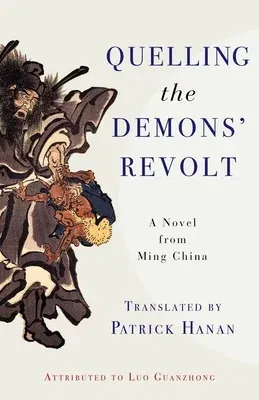In this Ming-era novel, historical narrative, raucous humor, and the
supernatural are interwoven to tell the tale of an unsuccessful attempt
to overthrow the Song dynasty. A poor young girl meets an old woman who
gives her a magic book that allows her to create rice and money. Her
father, terrified that his daughter's demonic nature might be
discovered, marries her off. Forced to flee, she and others with
supernatural abilities find themselves in the midst of a grotesque
version of a historical uprising, in which facts are intermingled with
slapstick humor and wild fictions.
Attributed to the writer Luo Guanzhong, Quelling the Demons' Revolt is
centered on the events of the rebellion led by Wang Ze in 1047-48. But
it is a distorted, humorous version, in which Wang Ze's lieutenants show
up as a comical peddler and a mysterious Daoist priest and a celebrated
warrior appears despite having died many years earlier. Rather than
fantastic adventures and supernatural marvels, the author points to
human vanities and fixations as well as social injustice, warning of the
vulnerability of any pursuit of order in a world plagued by demonic
forces as well as mundane corruption. Although the story takes place
long before the era in which it was written, ultimately Quelling the
Demons' Revolt is the story of the Ming dynasty in Song masquerade,
presciently warning of the dynasty's downfall. The novel is divided into
chapters, but in many ways it is an arrangement of self-contained
stories that draw on vernacular storytelling. This translation offers
English-speaking readers a spirited example of social critique combined
with caustic humor from the era of Luo Guanzhong.

